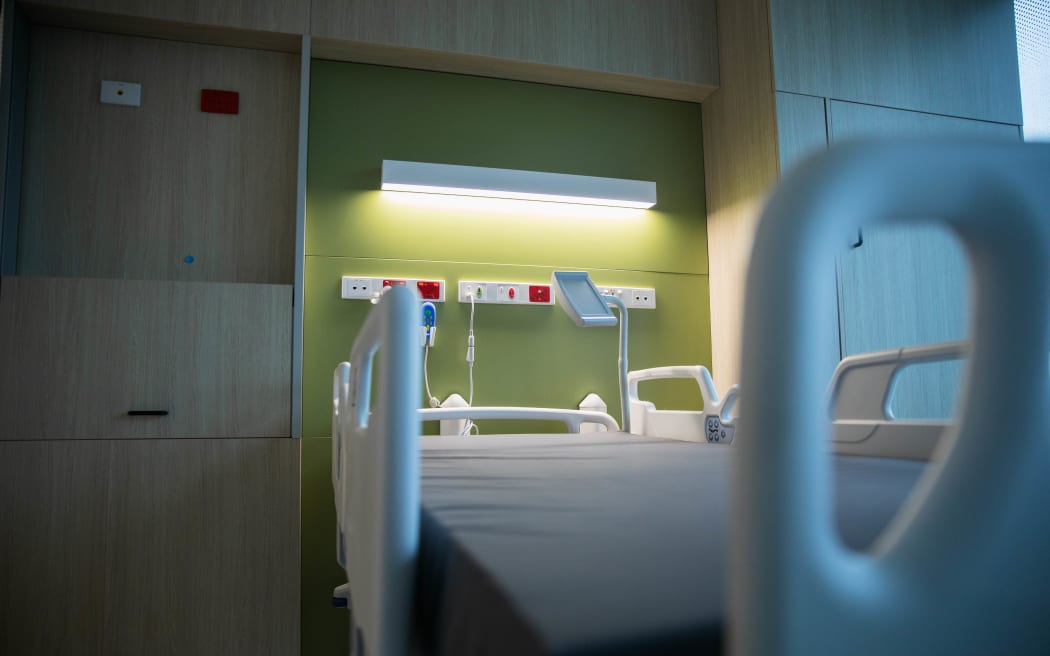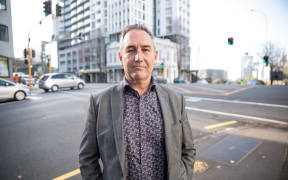
Te Whatu Ora said it was clamping down because it could not go into the new financial year operating in deficit as it currently is (file image). Photo: RNZ / Samuel Rillstone
Health New Zealand has ordered an end to double shifts and imposed new limitations on replacing sick staff in wards during the day to save money.
It is imposing 14 measures, outlined in an urgent letter to a health union.
In it, Te Whatu Ora said it was clamping down because it could not go into the new financial year operating in deficit as it currently is.
"We must address personnel related costs and have more room to do this, given the significant progress made on workforce shortages, such as filling nurse vacancies," the letter to the senior doctors' union said.
Other cost cutting measures had not been enough, it said.
"We have been using several levers to help manage rising costs in several areas, such as clinical supplies and the funding of new drugs. We have been reducing wastage and improving the management of our clinical supply stock. Measures of this nature alone will not keep us within budget."
The directives include that no one should miss lunch "to avoid additional payments being triggered", and health districts should consider closing off many vacant roles for good, unless they were part of a confirmed new structure.
It orders every shift to include two people on annual leave, "with minimal back fill" within safety guidelines (called CCDM).
"There will be no backfill in corporate services or wards except night shifts (subject to CCDM)."
No new hire is to start on in a non-clinical role before 1 July without top-level approval, and only at existing rates, Te Whatu Ora ordered.
"Encourage as many staff as possible to take Friday 26 April as annual leave, and to take Matariki."
The agency told RNZ in a statement this afternoon that it was not cutting frontline services and patients would not have a different experience.
"What we're doing at the moment is reminding our people of some of the things we need to do to ensure we live within our means," chief executive Margie Apa said.
"We need to make sure we're as efficient as we can be in our day-to-day operational practices."
'Unacceptable'
The Association of Senior Medical Specialists said it had heard in meetings that health districts needed to save between $2 million and $13m each.
It called the clampdown "unacceptable".
"What we're starting to hear is there are vacancies that have been approved to be filled, that are now either being delayed or not filled, sometimes when we know there are appropriate candidates available - now that is a massive concern," ASMS head Sarah Dalton said.
This was affecting medical oncology, psychiatry, obstetrics and gynaecology, she said.
"There's been a lot of rhetoric about the public sector cuts not impacting frontline services and not impacting health directly, but every signal we have had at every level of Te Whatu Ora ... is that they are trying to find savings and make cuts and these are going to impact on the ability to provide patient care."
Junior doctors agreed that the policy would inevitably hurt patients.
The head of the Resident Doctors' Association, Dr Deborah Powell, said the reason staff were clocking up overtime and leave was because of staff shortages.
"Our people have not been able to take annual leave again because of short staffing, because we're so short-staffed. In some areas if you take annual leave work simply won't get done."
She said the union has been trying to end double shifts for years because they're a health and safety risk, but this move by Te Whatu Ora made it clear money was a bigger concern.
Apa said staff had worked incredibly hard during Covid-19 and now "times have moved on and that means a return to more business-as-usual practices".
"We know that the more efficient we are, the more resources we can move into frontline services to improve outcomes for patients."







